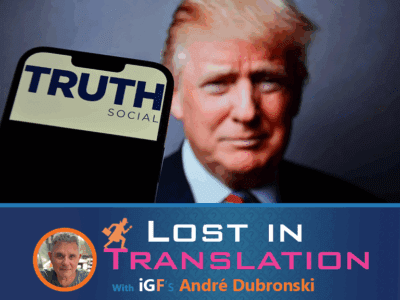European gambling markets were poised for a new era of safer and more sustainable gambling, but instead, according to the latest data from Holland, they’re getting a reality check.
Recent data from H2 Capital, presented by Chief Operating Officer Josh Hodgson at Gaming in Holland, reveals an alarming trend: the Dutch offshore iGaming market is growing by the month and is on track to surpass the regulated sector’s gross gambling win (GGW: stakes, minus wins before deducting costs) by 2026.
And it’s not just a Dutch dilemma.
With slot channelisation rates reportedly slumping as low as 20-40 percent in Germany, Hodgson argues that countries like the Netherlands are at a pivotal crossroads, with just enough time to course-correct.
But the window is closing.
Offshore Surging
Following the legislative re-set of its iGaming market in 2021, the Dutch market got off to a strong start, with channelisation rates–the percentage of GGW spent at legal platforms–peaking just below 70 percent in 2023.
But the momentum didn’t last.
In response to a mandated review, part of the 2021 legalisation, and to strengthen player protections, the Dutch government implemented tough new deposit limits in October 2024: €700 (£596) for individuals aged 24-years-old and above and €300 (£255) for those under 24.
While only a small segment of players reach those limits, they matter.

According to H2 Capital, the top five percent of users often generate up to 60 percent of gambling revenue in some markets. Restricting their legal spending doesn’t just impact revenue. It also pushes high-risk players toward unregulated platforms that lack responsible gambling tools and protections.
By 2025, the Kansspelautoriteit (KSA), the Dutch gambling regulator, reported a collapse in channelisation, with rates slumping to 50 percent in H2 2024. Concurrently, the analysts at H2 Capital also reported that the offshore market surged by 52.4 percent, compared to the regulated sector’s 5.8 percent gain – a situation that’s worsening by the month.
Critically, according to H2 Capital’s data, if this trend is not reversed, the Dutch offshore market is expected to surpass the regulated sector in 2026.
And the regulatory headwinds don’t stop there.
Tax Hikes
On January 1 2025, the Dutch government increased operator taxes from 30.5 percent to 34.2, with a further jump to 37.8 planned in 2026, a move said to widen the gap between regulated offerings and the illicit market.
Operators have stated that it has resulted in fewer bonuses and lower return-to-player (RTP) rates, making legal sites less attractive, especially for high-volume bettors. In turn, that means lower channelisation and, ultimately, lower tax revenue.
Adding to consumer uncertainty further and compounding the offshore revenue trend, according to H2 Capital, the government is preparing to ban “high-risk games” for players aged 18–21 – a category that remains undefined.
Enforcement
So, what is this course correction?
As per Hodgson’s presentation, regulators must focus on enforcing what they regulate, which means investing in serious action against unlicensed operators and empowering regulators through measures such as payment blocking, ISP restrictions, affiliate clampdowns, and other similar measures.
Some European markets, such as Germany, are years into their regulatory journeys and are now grappling with the unintended consequences of tipping the regulatory balance too far.
With gambling treaties due for revision and updates under consideration, German regulators are weighing the relaxation of certain measures.
Lessons for U.K.
Meanwhile, others–like the U.K.–are still in the midst of implementing reforms, making this a crucial moment to pause and reflect.
In the U.K., affordability checks have moved into the final phase of testing, adding to the raft of recent regulations–many of which parallel those introduced in Germany in 2021 and have since been attributed responsibility for the country’s plummeting channelisation rate–including a max limit on slot stakes, rules for game speed, bonus restrictions, and many more.
Simultaneously, and perhaps ominously, the U.K. government appears to be following the Netherlands’ trajectory and is currently discussing a tax hike.
Such a move is strongly opposed by U.K. operators who warn: “This risks forcing more customers to the growing, unsafe and illicit gambling market.”




